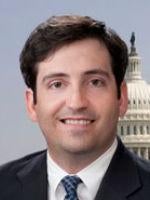In electing to testify in his own defense at his federal criminal trial for insider trading, hedge fund operator Doug Whitman made a decision that no other defendants in similar recent prosecutions had chosen. He was still convicted on all counts by a jury, just as were the other defendants who did not take the stand in similar cases.
Whitman operated Whitman Capital, a hedge fund based in Menlo Park, Calif., with about $100 million in assets under management. Prosecutors in the Southern District of New York alleged that Whitman made about $1 million for the hedge fund based on tips from insiders at various technology companies, including Polycom, Marvell Technology Group, and Google.
Whitman was found guilty of two counts of securities fraud and two counts of conspiracy to commit securities fraud. He faces a maximum of 20 years in prison for each charge and sentencing is schedule for December 20.
Five years ago, the Federal Bureau of Investigation launched an initiative known as “Operation Perfect Hedge,” aimed at prosecuting insider trading. The initiative has led to over 65 convictions over the past three years in cases brought by federal prosecutors in New York City. All eight defendants who have taken their cases to trial have been convicted by juries.
Among those convicted was Raj Rajaratnam, a fund manager for Galleon Group LLC, who was found guilty by a jury last year of 14 counts of conspiracy and securities fraud and sentenced to 11 years in prison.
The defense used by Whitman was that all trades that he made were in good faith and were backed by legitimate research. It is a defense similar to the one used by Rajaratnam, though Rajaratnam elected not to testify.
Whitman’s trial was unique because he was the first defendant prosecuted for insider trading who chose to testify in his own defense. Whitman testified that he never intentionally traded on improper information. He contended that his trades were based on research that he did on the companies and were not based on any illegal information. Whitman testified that he did not think that any of his sources possessed secret information.
The government presented three witnesses who had all pleaded guilty to passing illegal information on to traders and agreed to testify in an effort to secure a more lenient sentence. Whitman testified that the three witnesses had falsely implicated him out of their own self-interest. The government also presented secretly recorded telephone conversations that prosecutors alleged proved that Whitman possessed confidential information.
The jury deliberated less than a day before deciding that Whitman was guilty. Some observers suggest that the quick deliberation suggests that the jury gave little credence to Whitman’s testimony.
Ultimately, Whitman was convicted just as other defendants who were charged with similar crimes who did not testify. Defense lawyers know that putting their client on the stand presents significant risks, but they also know that this tactic may also provide an opportunity to show the jury that the defendant did not possess the culpable mental state. We will see whether in the future more defendants charged in insider trading cases elect to testify.



 />i
/>i

